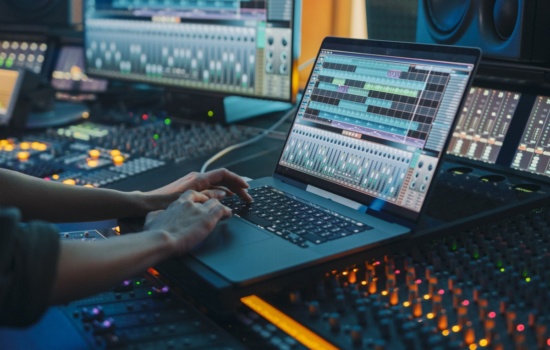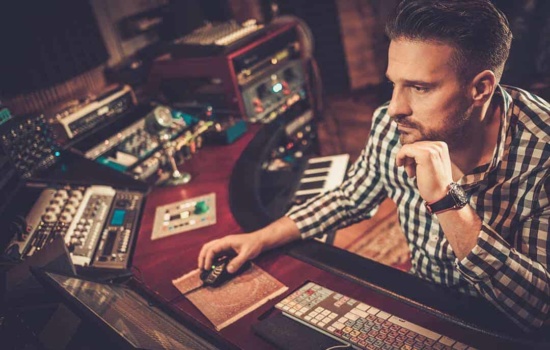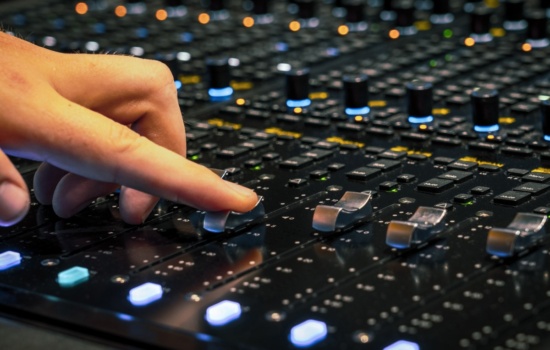Audio engineering is the process of recording, editing, and mixing audio, and it deals mostly with the technical aspects of those processes.
Music Career Finder
Survey Start
What Is Audio Engineering? Here’s How To Get Started…
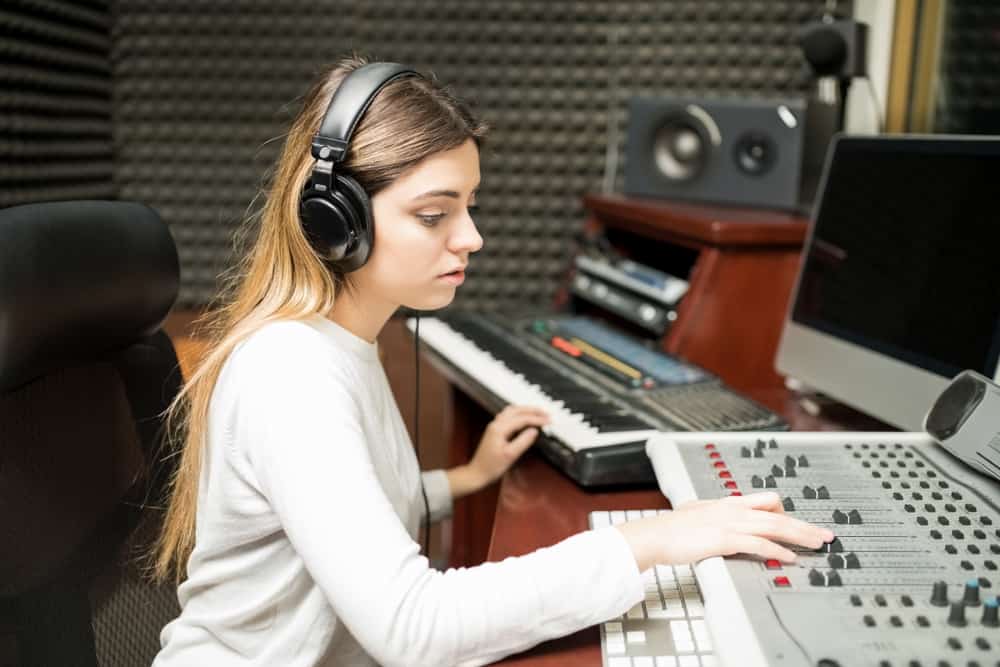
- Audio engineering is the art and science of recording and editing audio
- You can be an audio engineer in a recording studio, at live events, on set of a TV show or movie, and many other places
- You can become an audio engineer through hands-on experience or by earning a degree in audio engineering
- You will need to learn the technical aspects of recording and editing audio
- The average annual income of an audio engineer in the United States is $74,100 (about $35 per hour)
Other job titles of an audio engineer: Audio Technician, Sound Technician, Audio Technologist, Recording Engineer, Mixing Engineer, Mastering Engineer, Studio Technician, or Sound Engineer
- Introduction
- What Is Audio Engineering?
- What Can You Do With Audio Engineering?
- Recording Studio Engineer
- Live Sound Engineer
- Mixing Engineer
- Mastering Engineer
- Broadcast Engineer
- Field Recording Engineer
- A Day In the Life of an Audio Engineer
- Skills You Need as an Audio Engineer
- How Do You Become an Audio Engineer?
- Intern in a Studio
- Get a Degree or Certification
- Audio Engineer Salary
- Never Stop Learning
- Sources
- References
What Is Audio Engineering?
What Can You Do With Audio Engineering?
If you want to have a career as an audio engineer, there are multiple audio-related fields you can get into.
Here are a few options you can explore…
Recording Studio Engineer
In a recording studio, the audio engineer (or their assistant) is the one who sets up the recording space, makes sure all necessary cables are plugged in, positions microphones, manages recording levels, and then edits and mixes the audio to make sure it sounds professional.
They work from the soundboard in the control room of the studio.
This role can involve helping artists and bands record their music as well as recording and editing audiobooks and podcasts.
Live Sound Engineer
Audio engineers working in live performance settings are responsible for running sound checks before the event to ensure the audio sounds good from all parts of the space.
They also edit the audio during the event in real time to make sure it continues to sound clear to everyone in attendance. They may also be asked to record the audio for people to listen to after the event.
This is all done from a soundboard, usually in the back of the space.
Mixing Engineer
A mixing engineer specializes in the process of blending the parts of a recording together to make it sound professional. This is a process done after all the recording has finished, and it involves adjusting volume levels, panning audio elements left and right, and applying effects.
Mastering Engineer
A mastering engineer takes a mixed piece of audio and prepares it for commercial release. This involves increasing the volume of the audio file, applying effects to enhance the audio, and making sure the audio sounds good on every kind of playback system.
Broadcast Engineer
Broadcast engineers (AKA broadcast technicians) record and produce audio for live broadcasts on TV and the radio. They’re also in charge of maintaining the audio equipment and fixing it when needed.
Field Recording Engineer
A field recording engineer typically works on the set of a TV show, film, documentary, or any other situation that needs audio to be recorded outside of the studio or a live event.
Hey, what do you think about trying our new Music Career HelperMusic Career Helper really quick? It’s totally free and could help get your career moving fast! Give it a try. It’s totally free and you have nothing to lose.
A Day In the Life of an Audio Engineer
It’s very common for audio engineers to work long hours and be on the road for weeks at a time.
A recording engineer may work 10-14 hour days working with an artist.
Live sound engineers go on tour with artists and bands and can be gone for weeks or even months at a time.
Even mixing and mastering engineers may work long days because they’re on a tight deadline.
This is the reality of working as an audio engineer, so keep this in mind before you jump into this career head-first.
Skills You Need as an Audio Engineer
To succeed as an audio engineer, you have to be both technically skilled and creatively in tune.
Here’s a rundown of the skills you’ll need:
- Know the ins and outs of your chosen DAW (Pro Tools is the industry standard)
- Understand how microphones capture sound and how to position them for certain sounds
- Knowledge of sound and room acoustics
- Audio editing, mixing, and mastering
- Critical listening (having a “good ear”)
- Good communication and people skills
- Understanding how to fix equipment
- Musical knowledge (not necessary but helps)
- Sound design (not necessary but helps)
How Do You Become an Audio Engineer?
There are two main ways to become an audio engineer: hands-on experience or by earning a degree or certificate.
Intern in a Studio
Many audio engineers have gotten their start as an unpaid intern in a recording studio (AKA a “runner” or “gofer”).
In this entry-level position, you would do things like get coffee and food for the head engineer, artists, producer(s), and anyone else present. You may also move or help set up equipment.
After two to three years, you may be able to advance to the role of Assistant Engineer, if you’ve gone above and beyond as an intern.
Get a Degree or Certification
Another option is to go to school for audio engineering or earn an audio-related certificate. Typically, a degree in audio engineering would take 2-4 years to complete.
The degree or certificate is not the thing that will get you a job, it’s the knowledge you will gain through higher education as well as the connections you make with others.
Audio Engineer Salary
The average salary for an audio engineer in the United States is about $74,100 per year, or about $35 per hour.
Your annual income as an audio engineer can, of course, vary widely, depending on how experienced you are, where you live, where you work, and the network of connections you’ve curated.
Never Stop Learning
The expert audio engineers are not experts, at least according to them. Why? Because the best are always learning, always trying to improve, and never fully satisfied with their work.
Audio engineer and producer Warren Huart (Korn, James Blunt, Aerosmith, Grey’s Anatomy) says most of them learned on the job, and they just never stopped working on their craft.
“All of the best producers and engineers and mixers…none of those guys and girls would ever say that they are experts or professionals or at the top of their game,” he said.
You don’t need to stress about trying to become an expert. You just need to start engineering and never stop learning.
Sources
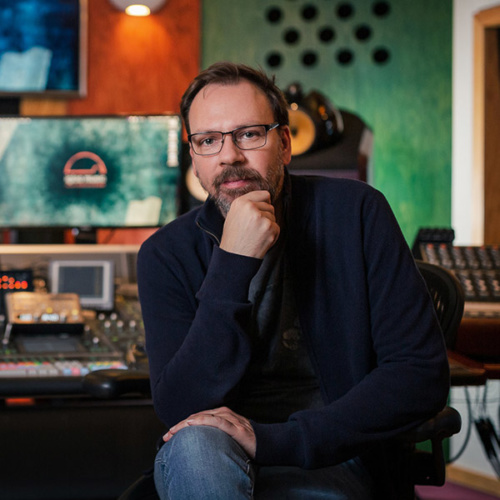
Gustavo Borner
Gustavo Borner has been engineering and producing albums and soundtracks for over 30 years. After high school in Buenos Aires, Gus attended Berklee College of Music in Boston, MA, and graduated magna cum laude with a double major in Music Production and Engineering and Film Scoring.
Once he was done at Berklee he moved to Los Angeles to pursue a career in recording studios. After a couple of internships, he landed an assistantship at former Giorgio Moroder’s studio, Rusk Sound in Hollywood where he became Chief Engineer. At Rusk, he was in charge of numerous album sessions as well as soundtracks for films like My Cousin Vinnie, Kindergarten Cop and Come See the Paradise (Alan Parker).
Gus then became a freelance Engineer and continued making records and soundtracks as an Engineer, Mixer, and Producer. Album projects include Andres Calamaro, Juanes, Roberto Carlos, Carlos Vives, Marilyn Manson, Pepe Aguilar, Kinky, Placido Domingo, Phil Collins, Luis Miguel, and Fito Páez. Totaling over 40 Million records sold and receiving 11 Latin Grammys and 4 Grammys.
His relationship with MTV led to many Unpluggeds, like the multi-platinum seller Ricky Martin Unplugged, Juanes, Los tigres del Norte (Producer and engineer), Pepe Aguilar, Kinky, Bunbury, Zoe, and recently Molotov and Los Autenticos Decadentes.
Live projects include Cirque de Soleil/SODA-Septimo Día, mixing for CD, and live multi-speaker show. Also mixing the broadcast for the New Orleans Jazz Fest from 2004 to 2010, remixing several DVDs from the festival as well. Also the Newport JVC Jazz Fest and music shows like Blind Boys of Alabama, Live from New York, Santana’s “Corazon LIVE” and the music film Make it Funky (Bonnie Rait, Keith Richards, Aaron Neville). Gustavo also mixed live several MTV awards shows and webcasts like the Foo Fighters for Microsoft’s MSN Music.
Film scores include Deadpool 2, the Rush Hour franchise with Lalo Schifrin, Guardians of the Galaxy 1 and 2, Watchmen and Suckerpunch with Tyler Bates, Sunshine, Miami Vice and 28 Weeks Later with John Murphy. Gustavo produced songs for films like Finding Nemo (Beyond the Sea) and Fly Me to the Moon (big band). Gustavo was the Scoring Engineer/Mixer for the critically acclaimed Alejandro Gonzalez Iñarritu’s Birdman, winning a CAS award, a TEC award and a Grammy.
Video game work includes Destiny 1 and 2, God of War, Fallout, several games for Blizzard and the upcoming Spiderman. Gustavo has been working for several groups within The Walt Disney Company since 1996. Since the year 2000, Gustavo operates from his state-of-the-art studio complex in Burbank, Igloo Music, where he runs 5 studios to record, edit and mix in stereo, 5.1 and Atmos. Clients at Igloo include Sony, Warner Brothers, Universal, Facebook, Ubisoft, and Disney.
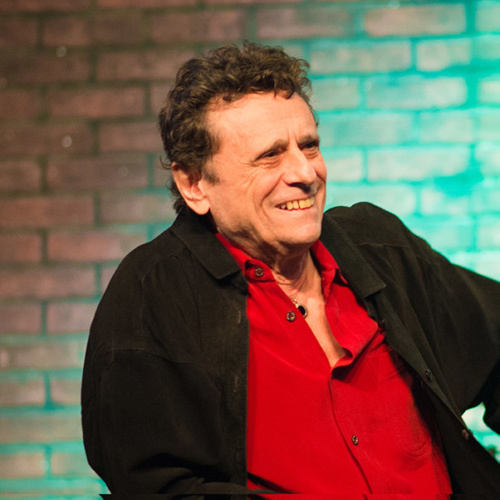
Jay Messina
I grew up in Brooklyn, NY. When I was 8 years old, my father bought me a set of orchestra bells. Music has been a part of my life ever since. My first studio gig was at Don Elliott’s studio. He had Les Paul’s one inch, 8-track machine. After a year, I went to A & R Studios for 4 years, where I spent many weekend hours honing my skills. The next 15 years were at Record Plant NY., recording all genres of music including Aerosmith, Kiss, Miles Davis, and lots more. My own studio is called West End Sound.
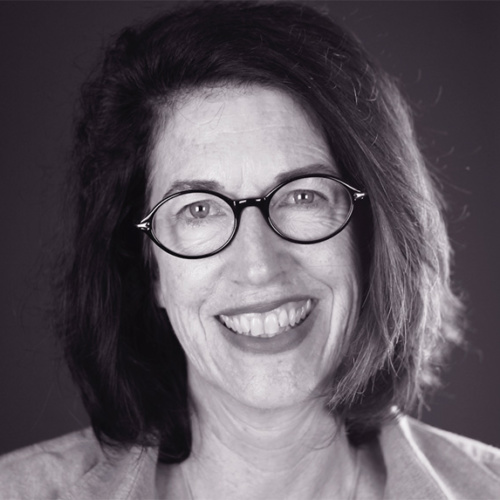
Susan Rogers
Susan Rogers holds a doctoral degree in experimental psychology from McGill University (2010). Prior to her science career, Susan was a multiplatinum-earning Record Producer, Engineer, Mixer, and Audio Technician. She is best known for her work with Prince during his peak creative period (1983-1987) but production/engineering credits also include David Byrne, Barenaked Ladies, Geggy Tah, Nil Lara, Robben Ford, Tricky, Michael Penn, and Jeff Black.
She is currently a Professor in the departments of Music Production & Engineering and Liberal Arts at Berklee College of Music, Boston, where she teaches psychoacoustics, record production, and analog recording techniques. Susan is the Director of the Berklee Music Perception and Cognition Laboratory for investigating the influence of musical training on the auditory pathway. She is currently authoring a book on music listening for W. W. Norton, NYC.
References
- 1Office of Occupational Statistics and Employment Projections. "27-4014 Sound Engineering Technicians". U.S. Bureau of Labor Statistics. published: May 2023. retrieved on: August 26, 2024
